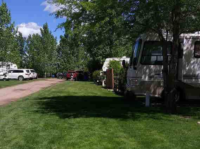Talk examines residential school denialism
By Ry Clarke - Lethbridge Herald Local Journalism Initiative Reporter on February 2, 2023.
The University of Lethbridge heard from guest speaker Sean Carleton (History and Indigenous Studies, University of Manitoba) Wednesday afternoon, presenting on Truth before Reconciliation: How to Identify and Confront Residential School Denialism. He spoke on how anti-Indigenous racism works, and the effect it has towards residential school denialism, as an attack to undermine truth and reconciliation efforts in Canada.
“This can help teach us important lessons about how to identify and confront the growing phenomenon of residential school denialism,” said Carleton.
“By definition, denialism is the rejection or the attempt to twist, misrepresent, or discredit basic facts rooted in well- documented evidence in favour of more controversial positions as a strategy. In this way, residential school denialism is similar to climate change denialism or vaccine denialism.
“It’s a deliberate strategy used to try and shake public confidence in something,” he said.
Carleton used former Canadian senator Lynn Beyak as an example, referencing her defence of Canada’s Indian residential school system that led to her retiring early from the Senate in 2021. Carleton also talked about how denialism is pushed on the public.
“The Truth and Reconciliation Commission showed Canadians the evidence of how residential schooling constituted genocide, sparking an intense public controversy.
The senator’s attempt to put a positive spin on a sad chapter in Canada’s history was not appreciated by many,” said Carleton.
“In the aftermath of the 2017 comments, Bevak constructed herself as the victim of politically motivated attacks on free speech.”
Carleton’s talk helped spark insight, but also knowledge on the importance of truth.
“It is extremely important for everyone to understand what the residential school experience was, but also as well what residential school denialism is in terms of denial,” said Tara Million, an assistant professor in the Department of Indigenous Studies.
“Downplaying the impact of residential schools is generally a claim that residential schools were not part of cultural genocide, that they were not harmful to the children who attended. It is not a denial that the residential schools happened, but it’s a denial of the impacts and intent of the schools.”
Emphasizing the importance of truth, the talk looked to show audience members how parts of history can be erased when denial leads to discredit.
“An important part of reconciliation is the concept of truth, and this idea that collectively, we as a society, need to understand the truth of our colonial history. Colonization impacted Indigenous peoples in a particular way, a very harmful way. Part of that impact was a policy of cultural genocide,” said Millions. “Reconciliation is important for our nation as a while, whether you are Indigenous or non-Indigenous, or a new immigrant. Because our society is built on the concepts of treaties, treaties that created a nation.”
The talk explored the concept of denialism in relationship to truth and reconciliation, and the importance of understanding the truth when it comes to our history.
“Choosing to dispute, deny, and discredit the commission’s findings are an excuse to avoid participating in reconciliation, to push pause on it,” said Carleton. “You don’t have to deal with a history that you deny. But it is the past that Indigenous and non-Indigenous peoples living in Canada have been asked to do in the era of Truth and Reconciliation.”
16-15





Working Online from home and earns more than $15k every month. I have received $17365 last month by doing online work from home. Its an easy and simple job to do from home and even a little child can do this online and makes money. Everybody can get this job now and earns more dollars online by just copy and paste this website in browser and then follow instructions to get started right now.
smile AND GOOD LUCK.smile
HERE====)> http://www.makeincome.live/
“Residential Schools Denialism” ??? Residential Schools existed. No one denies their existence. What is open [ or should be ] to examination and discussion is the nature and scope of conduct and it’s impact on attendees and their families amd consequently society at large. Unfortuntely, as shown yesterday at the U of L, a supposed institution of higher learning, the possibility of discussion is closed, the issue settled, and anyone proposing such discussion has merit is to be censored and banned, even if they wish to speak on an entirely different subject.
A sad day for the University, shame on the students [ thankfully more stayed away than protested ] and shame on those who spurred their own agenda at the expense of the reputation of the U of L.
indeed, quite the framing is the headline – was that a part of speaker’s platform: denying that there were residential schools?